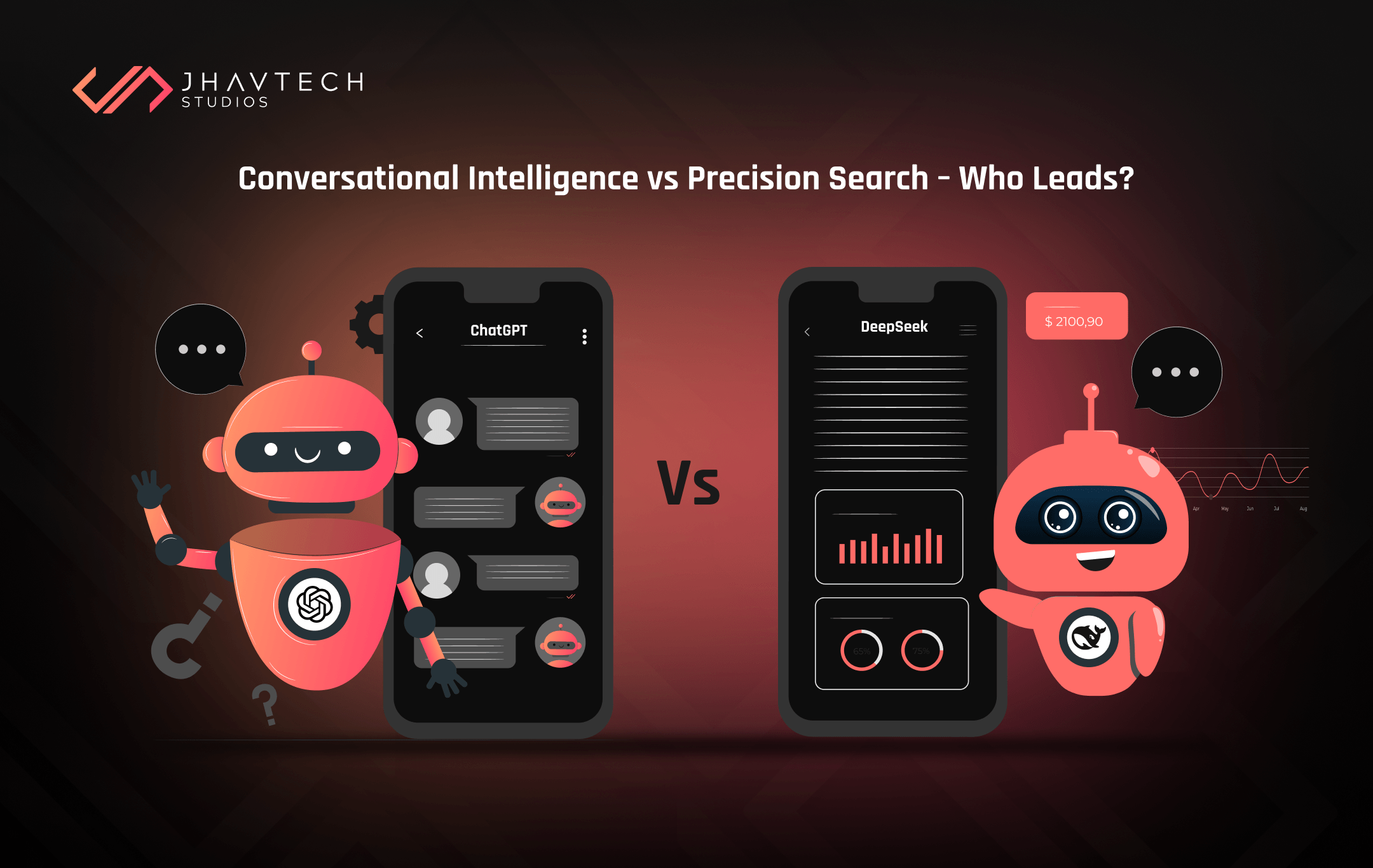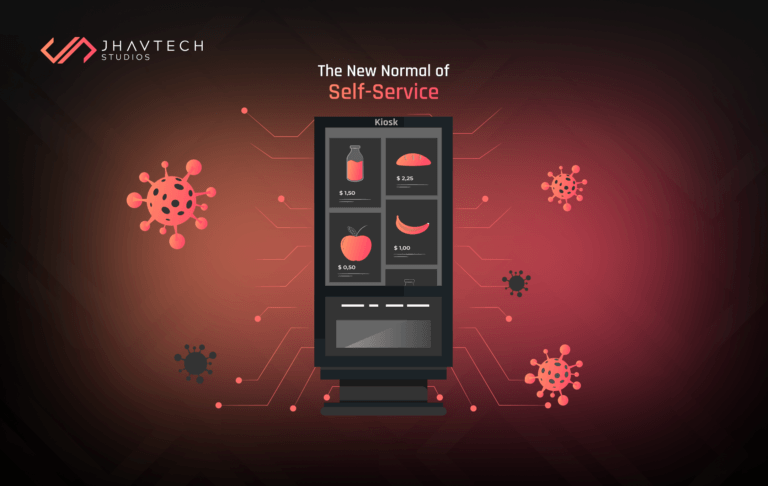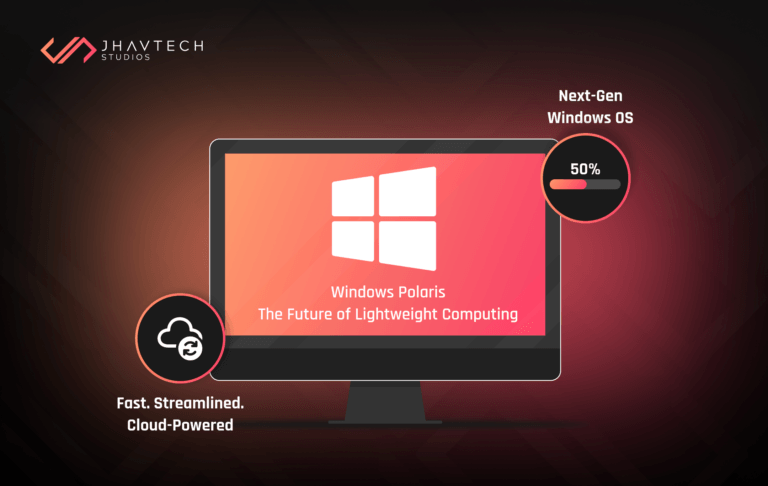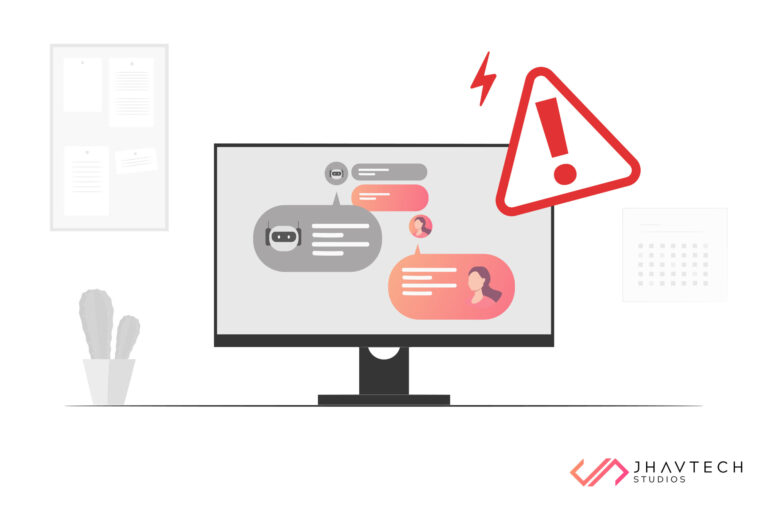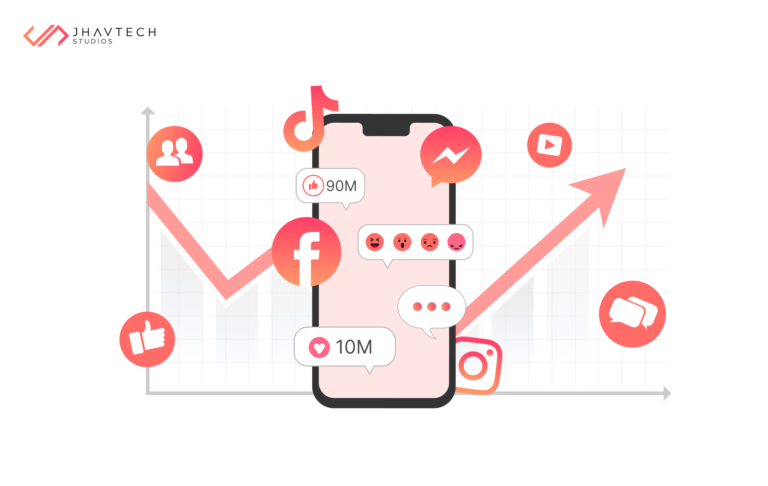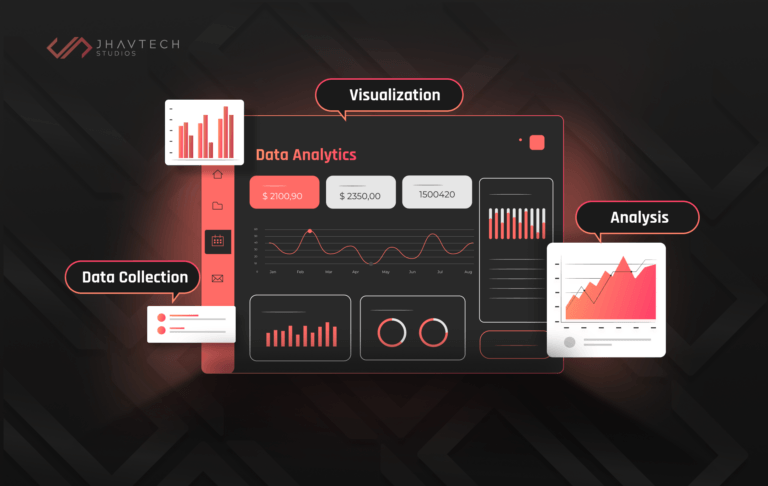Artificial intelligence (AI) is revolutionising the way we search for and process information. The shift from conventional keyword-based searches to AI-driven semantic understanding has transformed information retrieval into a more intuitive and conversational experience. Two prominent players leading this transformation are ChatGPT and DeepSeek, each offering unique approaches to AI-powered search.
ChatGPT, developed by OpenAI, is renowned for its conversational abilities and natural language understanding. In contrast, DeepSeek, a Chinese AI startup, has recently gained meteoric attention for its efficient and precise information retrieval capabilities.
This blog aims to compare and contrast ChatGPT and DeepSeek, scrutinising their strengths, weaknesses, and potential impacts on the future of AI-driven search. However, instead of declaring a definitive ‘winner,’ we aim to provide a nuanced analysis to assist professionals in understanding which tool best suits their needs.
ChatGPT: The Conversational Search Pioneer
ChatGPT is built upon OpenAI’s GPT architecture, specifically leveraging the Transformer model. Trained on extensive datasets consisting of text and code, it excels in generating human-like responses, understanding context, and assisting users with a wide array of queries beyond simple search functions.
Strengths:
Conversational Interface
ChatGPT offers an interactive, chatbot-like experience, allowing users to engage in dialogues that facilitate complex queries and iterative refinement of searches. This conversational approach makes information retrieval more intuitive.
Contextual Awareness
By maintaining context throughout a conversation, ChatGPT provides more relevant and personalised responses compared to traditional keyword-based search engines.
Content Generation
Beyond retrieving information, ChatGPT can generate summaries, translations, creative writing, and even code snippets, making it a versatile tool for professionals across various fields.
Accessibility and Popularity
ChatGPT has achieved widespread adoption due to its user-friendly interface and rapid evolution driven by user feedback. Its integration into various applications has further cemented its position in the AI landscape.
Weaknesses:
Accuracy and Hallucinations
Despite its capabilities, ChatGPT can sometimes generate incorrect or fabricated information, a phenomenon known as “hallucination.” Users must therefore exercise caution and fact-check its responses before relying on them.
Bias and Ethical Concerns
As with many AI models trained on large datasets, ChatGPT can inherit biases present in the data, raising ethical concerns regarding its use and the potential propagation of misinformation.
Limited Real-Time Information
ChatGPT operates with a knowledge cutoff and lacks real-time web access unless integrated with external plugins, limiting its ability to provide up-to-date information.
DeepSeek: The Specialised Search Engine
DeepSeek is engineered with a focus on efficient and accurate information retrieval. It integrates sophisticated indexing methods, semantic analysis, and knowledge graphs to enhance search precision and relevance. Notably, DeepSeek has been recognised for its cost-effective model training, reportedly spending less than $6 million, which is significantly lower than its competitors.
Strengths:
Enhanced Search Accuracy
DeepSeek utilises advanced indexing and ranking mechanisms, ensuring highly relevant results tailored to user queries. Its focus on precision makes it a valuable tool for professionals seeking accurate information.
Knowledge Graph Integration
By leveraging structured knowledge graphs, DeepSeek provides in-depth insights and a more organised approach to information retrieval, allowing users to access interconnected information efficiently.
Focus on Specific Domains
DeepSeek specialises in domain-specific searches, making it particularly powerful for industry experts looking for high-precision data in specialised fields.
Scalability and Performance
Designed for efficiency, DeepSeek can handle large-scale queries with optimised speed, which is crucial for enterprise applications and large datasets.
Weaknesses:
Limited Conversational Abilities
Unlike ChatGPT, DeepSeek does not engage in dynamic, iterative conversations, which can make complex queries harder to refine through dialogue.
Content Generation Capabilities
DeepSeek primarily focuses on information retrieval rather than generating creative content or summarising complex ideas, limiting its versatility in certain applications.
Public Availability and Adoption
While powerful, DeepSeek has a smaller user base compared to ChatGPT, which may limit its widespread adoption and the diversity of user feedback driving its evolution.
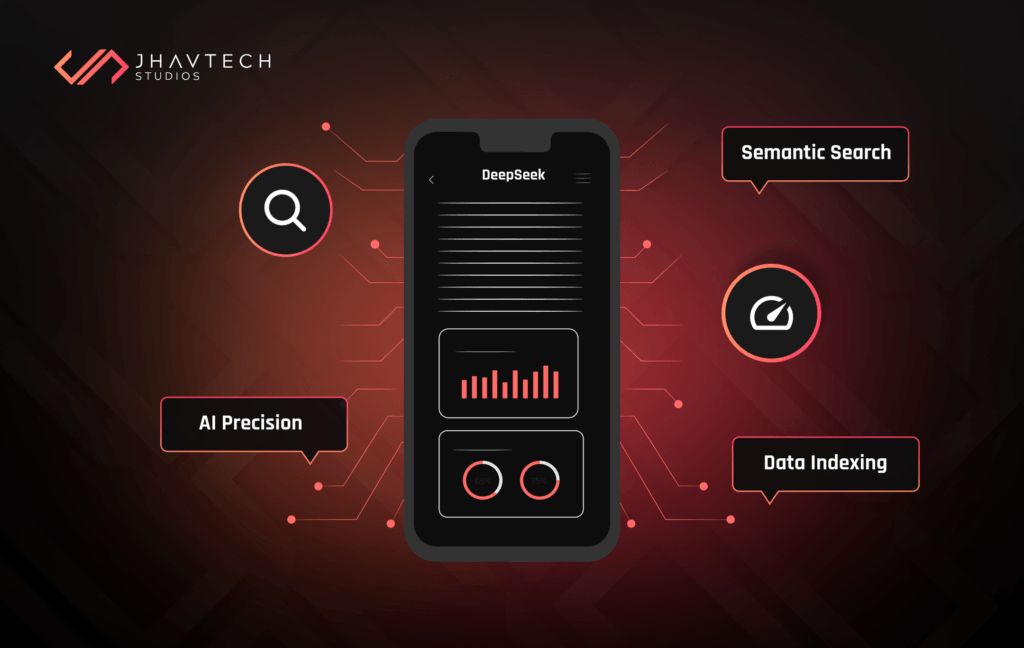
Comparative Analysis: Key Differences and Overlaps
Search Paradigm
ChatGPT redefines search with an interactive, conversational model, allowing users to engage in dialogues that facilitate complex queries and iterative refinement. In contrast, DeepSeek maintains a traditional yet sophisticated search approach, focusing on delivering precise and relevant results through advanced indexing and semantic analysis. ChatGPT is ideal for exploratory queries and creative tasks, whereas DeepSeek excels in structured, high-precision search tasks.
Data Sources and Training
ChatGPT is trained on vast, diverse text datasets, making it proficient in general knowledge, creative writing, and coding assistance. DeepSeek, on the other hand, optimises its data sources for factual accuracy and efficient retrieval, often integrating with structured databases and knowledge graphs to provide precise information.
Use Cases
- ChatGPT: Best suited for research, brainstorming, creative writing, and coding assistance, where conversational interaction and content generation are valuable.
- DeepSeek: Ideal for professionals needing high-accuracy search results, such as academic researchers, data analysts, and industry specialists, where precision and structured information are paramount.
API and Integration
Both platforms offer API integrations, but their applications differ. ChatGPT’s API is utilised for chatbot development, automated content generation, and virtual assistants, enhancing user engagement through conversational interfaces. DeepSeek’s API is geared toward enterprise search solutions and knowledge management, providing precise and efficient information retrieval for large-scale applications.
Combining the Power of Both
The true potential of AI-driven search may lie not in choosing between ChatGPT and DeepSeek, but in leveraging their complementary strengths. Imagine a workflow where DeepSeek acts as the precision instrument, meticulously gathering and structuring information, while ChatGPT serves as the eloquent communicator, transforming raw data into compelling narratives. For instance, a market research team could utilise DeepSeek’s advanced search and knowledge graph capabilities to collect granular data on consumer preferences, competitor activities, and emerging market trends.
DeepSeek’s ability to sift through vast datasets and identify key insights would provide the team with a solid foundation of factual information. This structured data, however, is just the raw material. To make it truly impactful, it needs to be presented in a clear, engaging, and persuasive manner. This is where ChatGPT shines. The team could then feed DeepSeek’s data into ChatGPT, prompting it to generate a visually appealing report, complete with executive summaries, insightful charts, and even personalised presentations tailored to different stakeholders. ChatGPT’s natural language generation capabilities would ensure that the report is not only informative but also easy to understand and digest, effectively communicating the key findings and recommendations derived from DeepSeek’s data analysis.
This synergistic approach extends beyond market research. Scientists could use DeepSeek to explore complex research databases and identify relevant publications, then leverage ChatGPT to summarise key findings, generate hypotheses, or even draft initial versions of research papers. Financial analysts could employ DeepSeek to analyse market trends and financial statements, subsequently using ChatGPT to create investor reports or presentations that clearly articulate the investment rationale. By combining the precision of DeepSeek with the communicative power of ChatGPT, professionals across various domains can unlock new levels of efficiency and insight, transforming data into actionable intelligence.
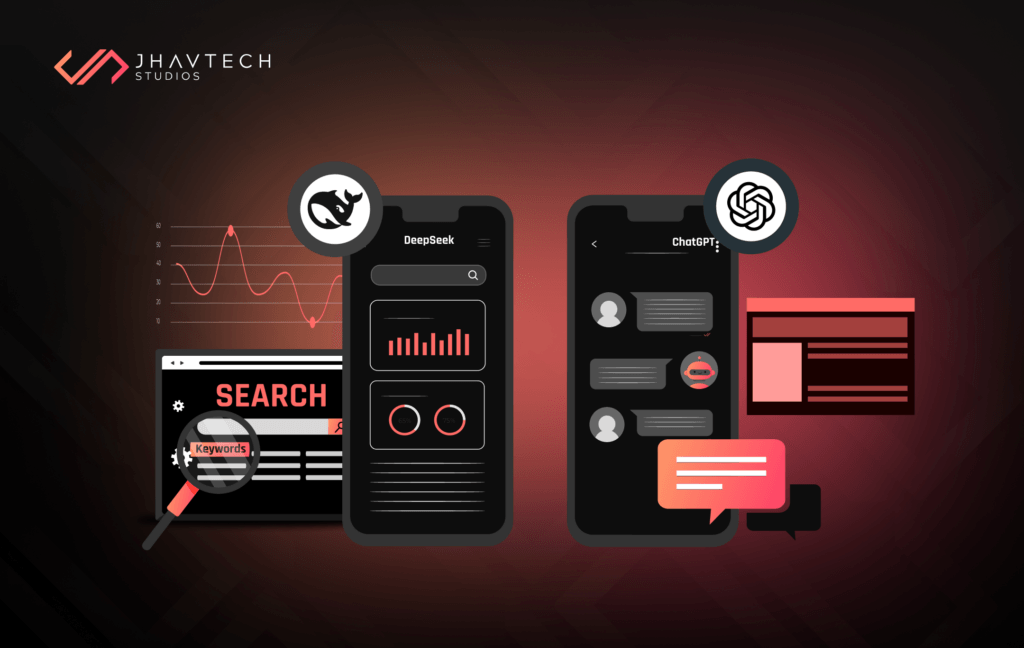
The Future of AI-Powered Search
The landscape of AI-powered search is rapidly evolving. We are likely to see a convergence of conversational AI and specialised search engines, leading to hybrid solutions that seamlessly blend the strengths of both. Imagine a search engine that not only understands your complex, nuanced queries through natural language but also provides highly accurate and structured results drawn from a vast knowledge graph. This convergence will likely be driven by advancements in natural language understanding, machine learning, and knowledge representation.
The impact of AI-driven search on various industries will be profound. In research, scientists will be able to explore vast datasets and uncover hidden connections with unprecedented speed. In education, students will have access to personalised learning experiences and interactive tutoring systems. In customer service, AI-powered chatbots will provide instant and accurate support, resolving issues quickly and efficiently. Even in fields like law and medicine, AI search tools will assist professionals in navigating complex regulations and medical literature, leading to better informed decisions.
However, with these advancements come ethical considerations. As AI-powered search becomes more prevalent, it is crucial to address potential biases in training data, the spread of misinformation, and concerns about privacy. Ensuring fairness, transparency, and accountability in AI search algorithms will be paramount to building trust and maximising the benefits of this technology.
Final thoughts…
ChatGPT and DeepSeek represent two distinct approaches to AI-driven search. ChatGPT excels in conversational interaction and content generation, making it a powerful tool for creative tasks and exploratory research. DeepSeek, on the other hand, prioritises precision and knowledge graph integration, catering to professionals who require highly accurate and structured information. While each platform has its strengths and weaknesses, they both contribute to the ongoing transformation of how we access and interact with information. The “winner” in this comparison depends entirely on the specific use case and the user’s needs. The future of AI-powered search is bright, and we can expect even more innovative solutions to emerge as this field continues to advance.
We encourage you to explore both ChatGPT and DeepSeek, experiment with their features, and discover which platform best suits your specific requirements.
.svg)
